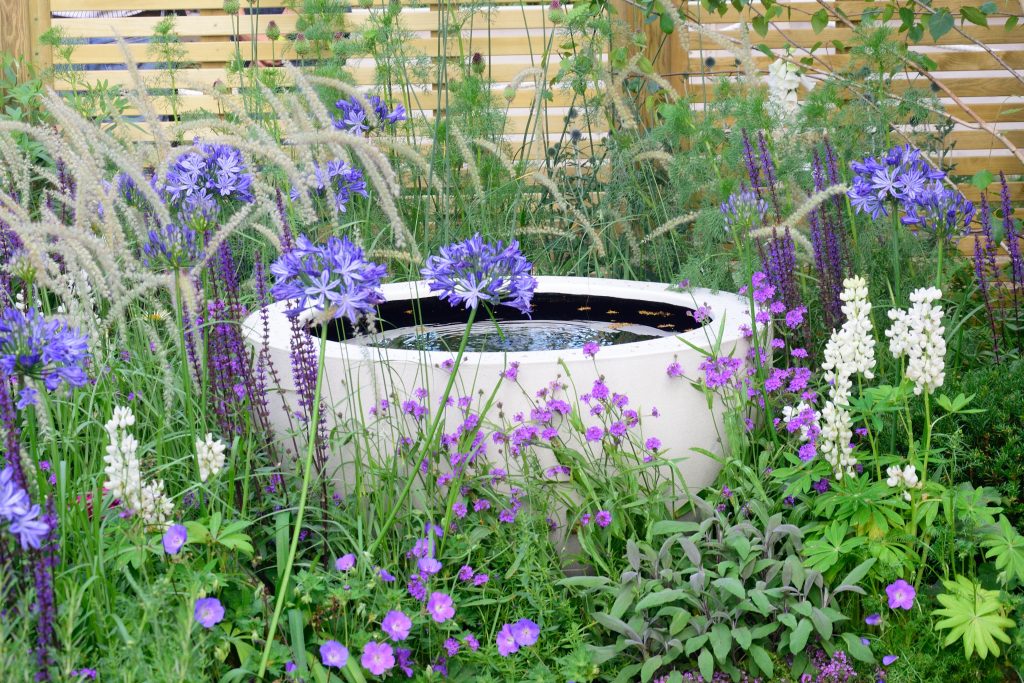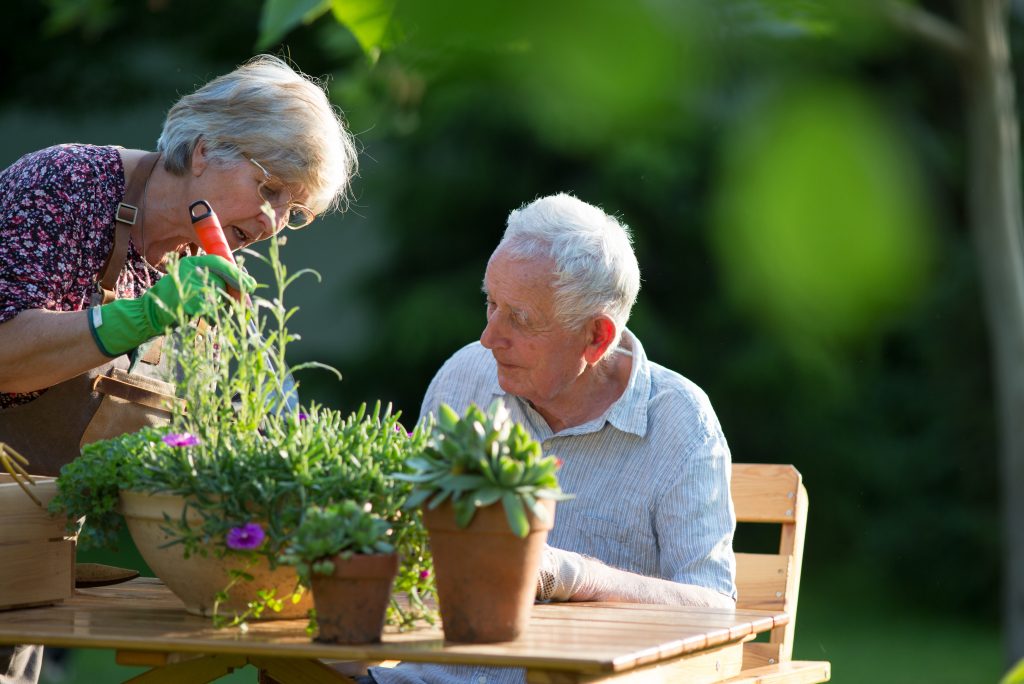
How can sensory gardens improve the mental and physical health of the elderly in care?
Being outside and having a connection with nature brings universal benefits to everyone. But why is this connection especially important for individuals in the care setting?
What is a sensory garden?
A sensory garden is a garden that has been designed to stimulate and enrich the senses. This includes sight, touch, sound, smell, and sometimes even taste!
A thoughtful sensory garden should include visually stimulating plants, that not only add colour, but also interest in other ways such as a unique leaf shape or texture, movement, varying heights, and architectural structure.
Focal points such as a water feature, or a bench at the end of a path can create a feeling of destination and offer a space to reflect or socialise.

Repetition of plants, forms, textures, and materials can also help to create a calming and therapeutic space. Tall grasses add visual interest throughout the year, but also therapeutic sound as they sway in the wind.
Studies show that smell is our strongest sense linked to memories, which is why it can be so beneficial in a care home setting. A sensory garden should incorporate lots of different smells, not only of flowers but also foliage such as mint, thyme, and rosemary.
How sensory gardens promote physical health and wellbeing
Enjoy connecting with nature
Being outdoors in the fresh air is a fantastic way to exercise, as well as boost your vitamin D levels while being in a calm environment. People can experience an improved quality of life by being able to spend time outdoors, as well as improving mindfulness.
Stimulate the senses
As we get older, we suffer from a reduced ability to use all our senses. Sensory gardens have the positive effect of creating an immersive experience, stimulating all the senses simultaneously!
Build community
A beautiful garden that residents enjoy being in can be a fantastic way to promote socialisation in a care home setting.

Decrease unwanted symptoms
Care home residents can widely benefit from the therapeutic effect of being outside. Research suggests that sensory gardens can help decrease confusion as well as reduce anxiety and agitation, helping improve the well-being of individuals.
Improved sleep
Natural sunlight can help us with regulating the body’s circadian rhythm. This combined with physical activity can help with improving sleep.
Boost self-esteem
Gardening is an activity that can be enjoyed by all people of all abilities and can help to relieve stress and boost cognitive ability. Being able to complete tasks or take part in activities can provide purpose and help grow self-esteem.
Accessible for all
By including raised beds in your sensory garden with wide paths, these can be accessible for all people, whether that’s by foot or by wheelchair.
How sensory gardens benefit people living with dementia
Sensory gardens have proven to be beneficial in reducing some of the debilitating aspects of living with dementia, as well as improving general health and wellbeing. This is increased even more when people living with dementia can participate in gardening. People with Alzheimer’s and dementia can feel a sense of purpose and accomplishment if they are given the opportunity to work in a sensory garden. Familiar scents such as rose or lavender, or being able to select flowers for a colourful bouquet can spur memories of things they enjoyed in the past.
Have you ever experienced a sensory garden?
Genesis Gardens will design a wonderful Sensory Garden experience. We will pay attention to your needs and come up with a plan that will provide you with a wonderful space to enjoy. Planting is included in any design to produce fragrance and stimulate the senses. Water features and wind chimes can also be added. Designs can be designed with both adults and children in mind.
Contact Genesis Gardens using the form below or give us a call on 01352 367 000. We look forward to hearing from you.

